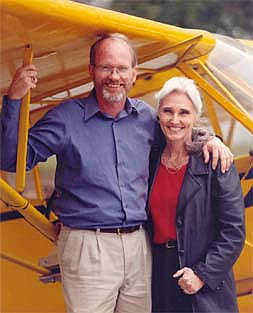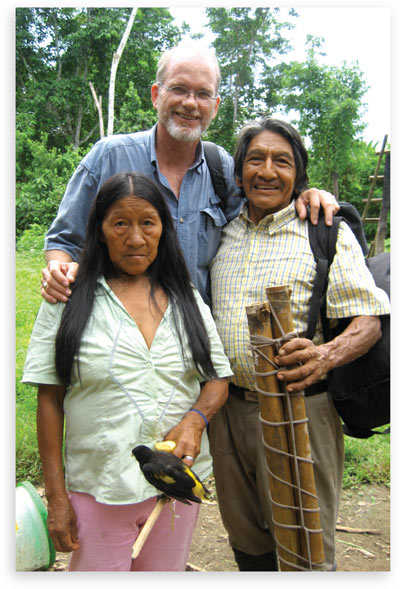
TL;DR:
Missionary work that reflects Christ must move beyond control and paternalism to genuine empowerment. Jesus modeled this approach by sending His disciples out, trusting them with responsibility, and assuring them of His continued presence. Paul continued this pattern by appointing local leaders and maintaining supportive relationships with them. Empowerment in world missions means developing confidence and capacity in local believers rather than creating dependency on foreign leaders and funding.
Are we tempted to stay in charge and call the shots?
"God's Way is not a matter of mere talk; it's an empowered life." -- 1 Corinthians 4:20, The Message
When Jesus gave His Great Commission, He wasn't simply assigning a task to people. He was empowering them. Indeed, "to commission" carries a bit of the same meaning as the verb "to empower."
We must work to create a culture of empowerment. Empowerment means giving people authority and power. Jesus did not hesitate to do that. He did not try to keep followers on a "short leash." Though His earthly ministry lasted only three years, the Gospels mention instances of Jesus sending followers out on short-term preaching/healing/deliverance missions. More importantly, Jesus empowered others for the future when He would not be there. For example, the night before His crucifixion, Jesus said to His closest disciples: "You will do greater things than this" (John 14:12). Because those words exuded trust and gave people permission to dream, the message was empowering.
Jesus certainly knew how fallible human beings could be. Even so, He expressed confidence in His followers. Why? Was it because empowerment tends to result in growth and maturation? Perhaps. Empowerment does open up new vistas for people. It turns people into decision-makers. It spurs the development of previously dormant leadership gifts. Empowered people gain confidence because someone believes in them.
Empowerment does not mean shoving people out the door and leaving them to flounder with no mentoring or accountability structures. Jesus debriefed those he sent out two-by-two. His Great Commission includes the words "I will be with you."
The Apostle Paul followed Jesus' example of empowering leadership. As Paul made his missionary travels, he appointed "elders" or leaders for the churches he planted. Then, he kept in touch with these churches, writing letters to them and visiting them. When a pastor/evangelist needed training, Paul turned to a couple from Rome, Aquila and Priscilla. Paul also empowered people like Titus and Timothy by making them "overseers" or superintendents of groups of churches.
Global missionaries dream about reaching lost people (or at least they should!) One potent way of turning such dreams into reality is to empower newly developing churches and their leaders. Among other things, empowering others multiplies the reach and fruitfulness of evangelistic and discipleship ministries.
Once in a while, missionaries fall into the trap of staying in charge as they wait and wait for the perfect successor to emerge. Others think they have empowered people when all they have done is give out a checklist of tasks to complete. Jesus did not approach His earthly minister in either of these ways. Missionaries who follow Christ's model of leadership will empower people in the same way as Jesus did.
-- Howard Culbertson, hculbert@gmail.com
This blog on Christlike attitudes and actions that need to be present in cross-cultural missionary service is one of a dozen articles in the "Missionary ministry that reflects Christ" series published in Engage magazine.

Steve and Ginny Saint, 2007 ((Image Source)
We often focus on what missionaries "give" people: the gospel, Bible teaching, clean water, health care, disaster relief, and many other things. In reality, good missionary ministry should move beyond giving things to empowering people, strengthening them, and giving them confidence in exercising their rights and controlling their life's direction.
Steve Saint is an example of the ways good missionaries empower believers of other cultures. Steve was five when Waodani warriors killed his missionary pilot father and four other missionaries on a sandbar along a river in an Ecuadorian jungle.
When Steve's aunt Rachel and Elisabeth Elliot moved into a Waodani village to evangelize, Steve began spending his summers with them, living among the very people who had killed his father.
Steve fell in love with the Waodani. When he was 14, Steve was baptized by Waodani church leaders not far from where his father had been killed by them nine years earlier. Today, Steve Saint uses the endearing term "grandfather" for Mincaye, the man whose spear took his father's life.
After Steve's Aunt Rachel died, the Waodani asked Steve to come back to Ecuador to live among them. He agreed, and in his book The Great Omission: Fulfilling Christ's Commission Completely, Steve says that what he saw on his return to the Amazon jungle disappointed him.
Steve said he was "dismayed" to find the Waodani church "less functional than it had been when I lived with them during school vacations." What caused the dysfunction? Besides non-Christian outsiders encroaching on their lives, the Waodani's self-reliance had been eroded by "all of the benevolence they received from Christian missions and relief organizations."
Well-meaning but sadly misguided American believers had reduced the Waodani to waiting for handouts from outsiders. When the Waodani churches began, they were almost completely self-sustaining. On Steve's return, he found them waiting around for "stuff" from the foreigners: material goods, church building repair, construction projects, health care, and training conferences.
Determined to see the outsider/Waodani relationships move from paternalism to empowerment, Steve worked to empower them to take back control of their lives, make decisions on their own, and consider themselves equal to outsiders.
The journey was not always easy. Habits and mindsets can be hard to change. Steve also had to deal with well-intentioned Americans eager to do things for the Waodani, whom they saw as backward, deprived, and needing to move into the "modern world."
Steve told the Waodani to decide for themselves whether they would remain in the rain forest and how much of other cultures they would incorporate into their own. He suggested they consider the use of appropriate technology, and he even helped invent a dental office that would fit in a backpack for jungle use.
Steve Saint has had success helping the Waodani people return to dignity and self-sufficiency. He must be very proud that the Waodani themselves now evangelize other tribal settlements in the Amazon basin.
Like Steve Saint, good missionaries empower people.

Steve Saint in Ecuador with Mincaye, his Waodani "grandfather" and Mincay's wife ((Image Source)
Note: Steve Saint has authored a missions study package titled The Missions Dilemma in which he examines the current model of North American missions and compares it to the Biblical approach that Christ modeled for us.
"I have strength for all things in Christ who empowers me." -- Philippians 4:13, The Amplified Bible, Classic Edition
In the context of cross-cultural church planting movements, empowerment refers to assisting local believers in taking ownership of planting and growing churches within their own cultural context. It involves allowing and equipping indigenous leaders to lead and sustain thriving Christian congregations within their own communities and contexts.
An environment in which empowerment is the goal will be marked by the following:
More mini-essays in the "Doing missions well" series
E - Elevate those around you with kindness and care.
M - Motivate others to believe they can dare.
P - Provide support, a helping hand.
O - Open your heart to understand.
W - Walk with them through highs and lows.
E - Encourage dreams so their confidence grows.
R - Reminder: true strength is shared, not kept.
Like acrostics? Here are more of them

Do you know what you may be leaving behind on the field when you go on a brief mission trip? Do you know how your hosts in other countries may sometimes feel about you and your visit?
Consider the lesson in this fable about a dancing elephant.
A story illustrating the problems which arise when over-exuberant, lets-get-it-done Americans interact with Christians of other cultures
"Would you like to know what it is like to do mission with Americans? Let me tell you a story," said David Coulibaly, a church leader from Mali, West Africa.
Elephant and Mouse were best friends. One day Elephant said, "Mouse, let's have a party!"
Animals gathered from far and near. They ate, and drank, and sang, and danced. And nobody celebrated more exuberantly than the Elephant.
After it was over, Elephant exclaimed, "Mouse, did you ever go to a better party? What a blast!"
But Mouse didn't answer.
"Where are you?" Elephant called. Then he shrank back in horror. There at his feet lay the mouse, his body ground into the dirt -- smashed by the exuberance of his friend, the Elephant.
"Sometimes that is what it is like to do mission with you Americans," the African storyteller concluded. "It is like dancing with an elephant."
From the Mobilizer